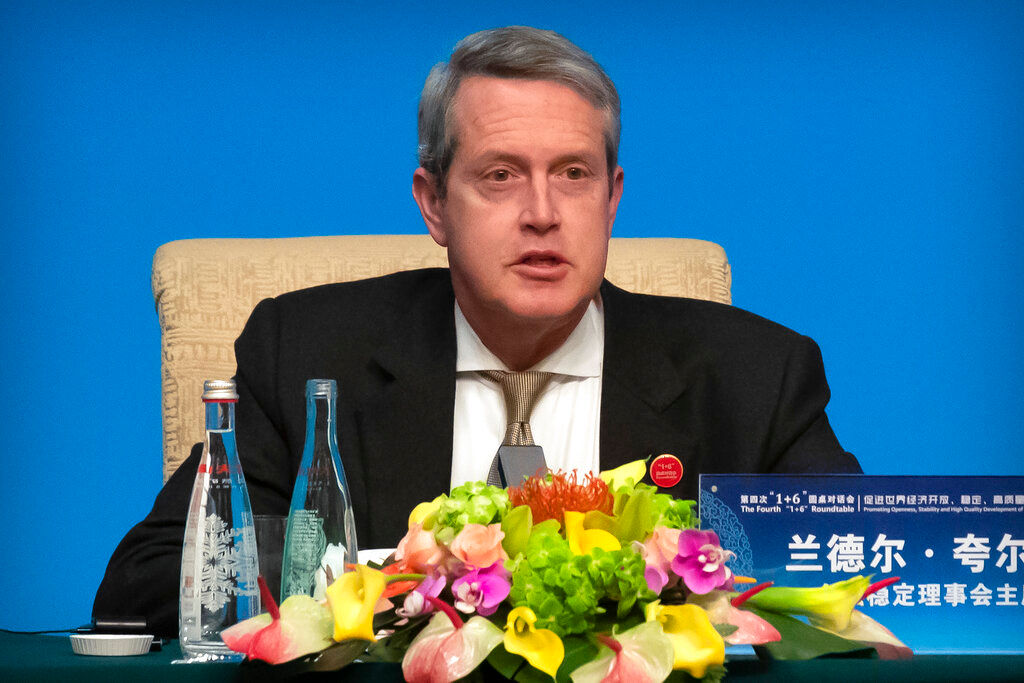Federal Reserve‘s Board of Governors will have another vacancy at the end of the year as Randal Quarles announced that he will resign from the Fed Board at the end of the year after completing a four-year term, giving President Joe Biden another slot to fill.
Besides Quarles’ soon-to-be-vacated position on the board, a second slot is vacant and a third will open up in January when Vice Chair Richard Clarida’s term will expire. Counting the seat held by the Fed chair, that gives Biden a total of four potential slots to fill.
Quarles is serving as the Fed’s first vice chair of supervision. The position has wide-ranging authority over the banking system. In that role, Quarles oversaw a broad loosening of some of the financial regulations that were put in place after the 2008-2009 global financial crisis and recession.
Quarles’ deregulatory approach resulted in some backlash from some on the Fed and from many progressives. It has also made the potential re-nomination of Jerome Powell as Fed chair more difficult to be accepted by the progressives as he has voted in favor of Quarles’ regulatory changes. Powell’s term as chair is ending in February next year
An announcement is expected sometime this month on whether Biden will offer Powell a second four-year term. The president is considered likely to re-nominate Powell, although he could decide instead to elevate Lael Brainard, who is the lone Democrat on the Fed’s seven-member board, to the position of chair.
Biden now has an opportunity to shift the Fed’s board toward a more Democratic-dominated one. That would undercut one key argument against Powell: That even if Biden elevated Brainard to the Fed’s top bank supervisory post, Powell could ignore or override efforts she might take to toughen financial rules. If Biden were to successfully appoint three new governors to the Fed’s board, Democratic appointees would outnumber Republican ones.
Late last month, in an appearance on CNN, Treasury Secretary Janet Yellen defended Powell against any notion that he has weakened bank rules. Yellen asserted that financial regulations were “markedly strengthened” under Ben Bernanke’s Fed leadership, during her own subsequent term as chair and under Powell as well.
Members of the Board of Governors have permanent votes at each Fed meeting on interest-rate policy, a powerful tool that affects hiring and the economy. The 12 regional Fed bank presidents also attend policymaking meetings, though only five of them are able to vote on the Fed’s decisions. The New York Fed president holds a permanent vote, and the regional bank presidents hold four votes that rotate among them each year.
The Fed governors also vote on financial regulations, and they could take steps to regulate some cryptocurrencies, known as stablecoins. Some of the officials, including Brainard and Powell, have discussed incorporating climate change considerations into the Fed’s bank oversight, a possibility that has met with opposition from congressional Republicans.
(With AP inputs)






